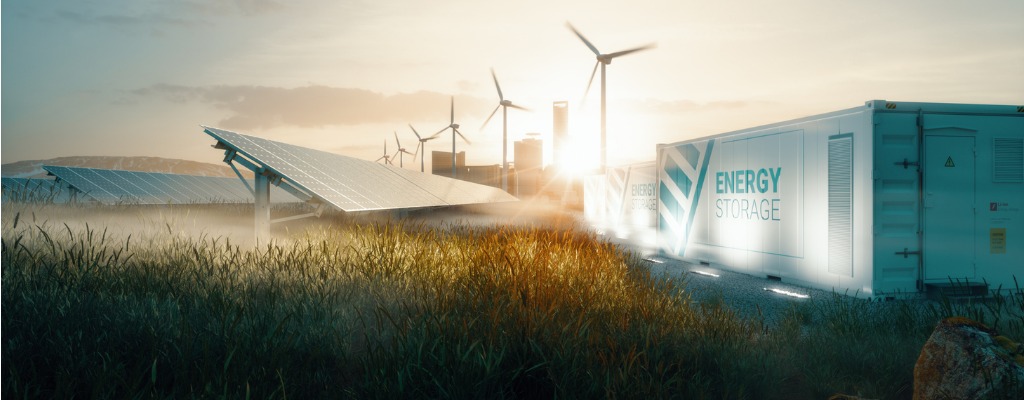What exactly does the term “clean energy” mean?
Simply expressed, “clean” energy is energy produced without the release of dangerous greenhouse gases–carbon dioxide, nitrogen oxide, methane, and the like–or other detriments to the environment. Renewable energy, often known as clean energy, is derived from natural resources that are renewed naturally. Sunlight and wind are examples of renewable energy. Clean energy is obtained from sources that do not emit pollutants into the atmosphere.
Environmentally friendly examples of clean energy
Solar, wind, bioenergy, and geothermal energy are the cleanest forms of energy available among the majority of energy sources. These energy resources would be the furthest away from “unclean sources” or carbon polluted energy. Green energy, on the other hand, is energy derived from renewable natural resources. Although they are commonly referred to as the same thing, there is a slight difference between these two types of energies.
Most of the “clean” sources of energy we think of today are also renewable. These “renewables” include sources that are inexhaustible as we know them to exist in nature: wind, the sunlight that produces solar power, the strength of the earth’s tides, the waterpower that drives hydroelectric plants, and the geothermal energy that flows from the earth’s core.
Another developing and potentially important source of clean energy is the bioenergy derived from the activities of algae and other living things. Food waste products and fermented crops also count as sources of bioenergy, which is finding its most practical applications in the production of transportation fuel.
Why is clean energy important?
Clean energy is an essential component of having sustainable energy for the whole world. The environmental advantages of clean energy as part of an international energy future will help to maintain the world’s natural resources and lessen the likelihood of environmental catastrophes such as fuel spills and natural gas leakage. Less exposure to hazardous chemicals as well as less consumption of raw materials of the earth are two benefits of clean energy. Solar and wind energy, for example, have no negative effects on the air we breathe and the water we drink.
Why should we care about clean energy?
Reducing Dangerous Emissions for a Cleaner World
The production of electricity from clean energy sources contributes only minimally, if at all, to global warming and other types of climate change. This is basically the opposite of the situation that results from the use of “dirty” sources–oil, gas, and coal-derived from fossil fuels.
And with fewer of these “dirty” pollutants finding their way into the air, water, and soil, humans come into contact with fewer substances that can cause or aggravate a wide range of health issues.
Clean energy also contributes to the conservation of the country’s natural resources. Clean energy provides consistent power, enhances energy independence, and minimizes the risk of fuel leaks while helping to reduce the import of fossil fuels.
Biomass Energy
Another nuance to the clean energy picture involves biomass energy, in which the burning of organic material from plants and animals releases electricity-generating chemical energy. While biomass has become an important component of today’s energy grid as a means of reducing reliance on fossil fuels, it is not, strictly speaking, a “clean” energy source.
In many cases, biomass can offer a greener alternative, but recent studies have shown that burning some types of biomass material results in greater amounts of carbon emissions than the burning of fossil fuels. The worst offender in this regard is forest biomass.
However, other types of biomass make “clean” sense as part of an overall energy plan. The wood chips and sawdust produced by sawmills would otherwise be wasted through quick decomposition that would itself generate increased carbon. But when harvested as part of a biomass energy program, these sawmill byproducts can serve as reliable producers of low-carbon energy.
What Is the best way to use clean energy?
Based on the source of the energy, clean energy can be used for a range of purposes, ranging from power generation to water heating and much more. And if you’re ready to choose a different source of energy to power your home or business? Learn more about Verde Energy’s renewable energy programs that are environmentally friendly.
The Future of Energy
American energy customers drew about 20 percent of their electricity from renewable sources and another 20 percent from nuclear power in 2020. Moreover, in the first quarter of 2020, year-over-year figures showing the overall global utilization of renewable energy sources rose by approximately 1.5 percent. Over the course of the COVID-19 pandemic, experts have noted that the renewable energy industry has been the most resilient in the face of national and local lockdown strictures, with the demand for, and the provision of, renewables remaining basically unaltered under these novel conditions.
What role will clean energy play in the economy?
Clean energy has economic advantages, as the globe moves away from fossil fuels to renewable and clean energy sectors. This will result in additional opportunities in various work fields of infrastructure, manufacturing, and installation of clean energy solutions.
As the world’s reliance on fossil fuels declines, clean energy is likely to be the way of the future to supply power demands. As the push towards clean, green, and renewable energy progresses, the cost of these renewable power-generating solutions will continue to decrease over time, as new tech is invented and utilized. Clean energy’s ecological, societal, and economic advantages are becoming more widely recognized, and as more cities, states, and countries sign on to green power strategies.
The production and use of clean energy is part of a global response to the urgent need to stem climate change, preserve natural resources, safeguard human health, and evade multiple types of large-scale environmental catastrophes. In particular, the diversification of the world’s energy grids through incorporating a variety of different power plants and energy types increases the resilience of national grids and energy security. Verde offers green energy to its customer, find your plan today.



